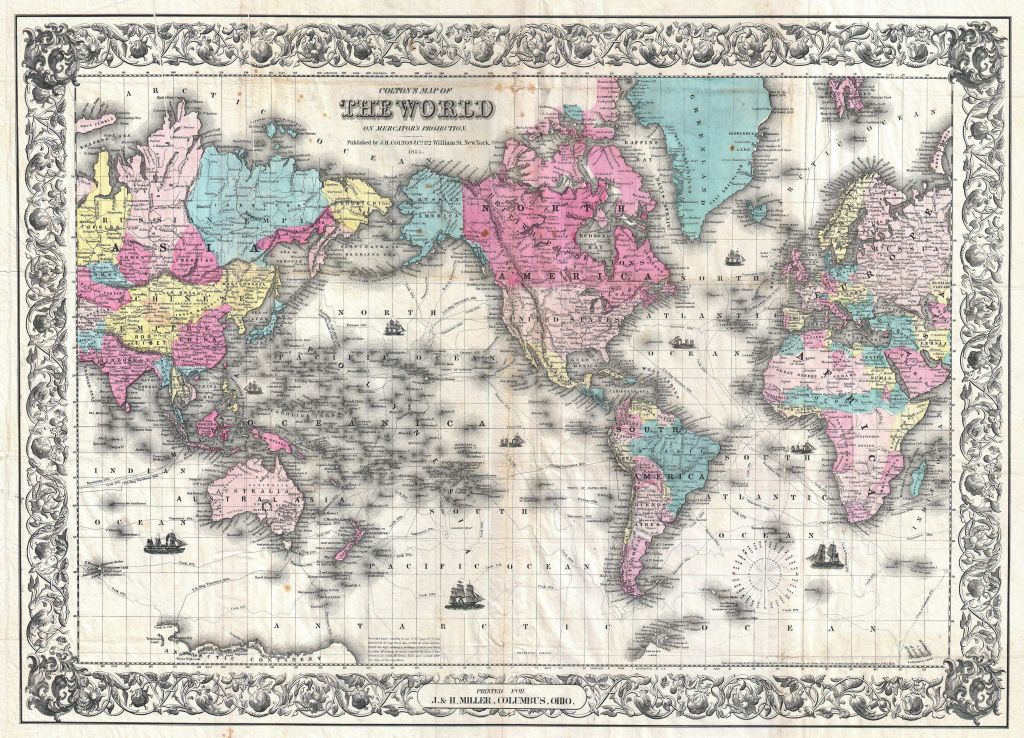The African Union recently called for the standard 16th century Mercator global map to be replaced by a new one to better reflect Africa’s true geographic size. This is long overdue as a purely representative measure, but potentially misleading in a geostrategic sense: The new map correctly shows Europe to be much smaller than Africa, but it remains in a pivotal global location. The problem is, Europe – notably the EU and its leaders – does not seem to understand the significance of this fact.
Europe is the only continent that has inflicted itself on every other continent in the world over millennia. This is largely due to its geostrategic location, as lying at the centre of the inhabited world (especially as seen on a globe): all continents are relatively reachable by sea, as are Asia and Africa by land.
In the 4th century BC, Alexander the Great campaigned from Greece to Persia, creating an empire that spanned well into central Asia. In the 3rd century BC, Hannibal marched a massive army from Carthage, in north Africa, through what are now Spain and France, then across the Alps to confront Rome in the Second Punic War. By the 14th century, there were significant intellectual and trading developments happening in Asia, notably China and India, long before Europe woke up from its wars of religion and mass deaths from plagues.
But it was Europeans who sailed off to discover lands unknown to them, far away yet reachable by sea – largely thanks to their being in a position to sail easily in all directions.
This geostrategic reality remains unchanged. Europe faces immigration from Africa, where people are starving due to climate change or violent autocrats. Or from the Middle East, Iraq and Afghanistan, for the same reasons and the added destruction of failed wars waged by the US and the West.
Russia presents another: Not only has it violated the sovereignty of Ukraine with an appalling war of aggression – if Ukraine loses, Russia once again sits on the borders of EU states, possibly with Ukrainian soldiers forced to turn the weapons we gave them against us.
And to Europe’s west, President Trump seems to have forgotten that NATO stands for the North Atlantic Treaty Organisation – a crucial sea for both the US and Europe. It is doubtful anyone has mentioned this to him, not only for fear of stirring his temper but also because of the seeming ignorance of Europeans.
It has often been said that Europe took a “peace dividend” after the Cold War, or indeed a “holiday from history”. But that misses the point: Europe has taken such a long holiday from geography that it seems to think of itself more as one of the stars on its flag than a continent in the middle of the world.
For the past three decades, the EU has treated Africa, the Middle East, even Russia, as if they were some uninteresting but irritating remote islands in the South Atlantic, rather than neighbouring regions that are both necessary for resources and income, and potential sources of confrontation and competition. The approach has been building walls and doling out cash to keep outsiders at bay, or quiet. Often to little effect.
As a result, it is the US that is brokering deals in the Middle East and failing to do so in Ukraine – while the EU, the geographic neighbour of both, has no seat at the negotiating tables. This is not a problem of power projection or imagery, but of interests, pure and simple. Europe is affected by these exploding conflicts and is ignored by the warring factions and global powers. Worse still, it seemingly invests in ignorance.
The endless circuit of experts, academics and policy makers who advise politicians and deal brokers are often well-meaning, but many are not versed in the harsh reality of war and peace. In fact, many are not versed in any form of harsh reality, nor are the politicians and deal brokers. They fly around the world, talking to each other in conference rooms without apparently looking out of the window at the world: the geographic, geostrategic and thus geopolitical reality around them.
Until Europe and its leaders accept geography as a basic fact of European existence, its irrelevance will endure – and the dangers will mount. No amount of weapons or money can overcome the shortcomings – or replace the advantages – of the real position of Europe in the world.
Ilana Bet-El is a strategic adviser, writer and historian. A former UN official and senior adviser on the Balkans, she has worked extensively with governments and clients in the private sector on geostrategic and policy issues related to security, defence and energy in the EU, Russia, Turkey and broader Europe, the Middle East and the Trans-Atlantic community. She is a contributing editor and columnist at Euractiv.
